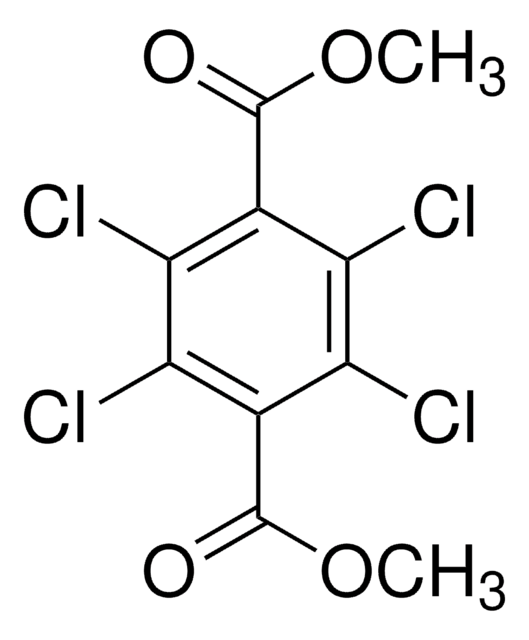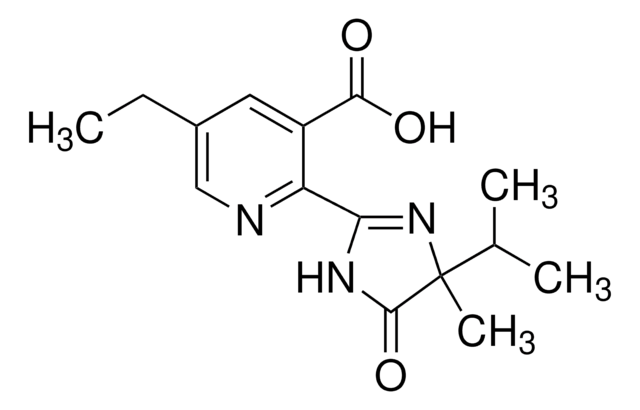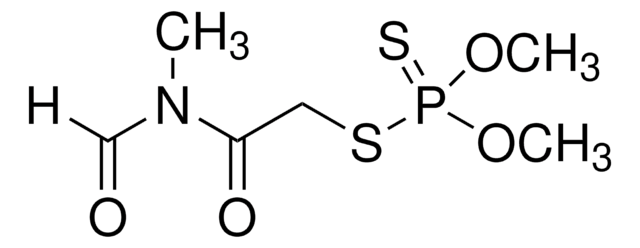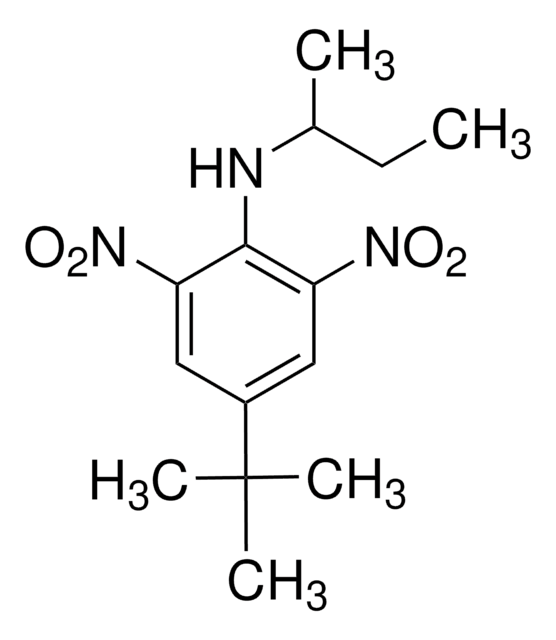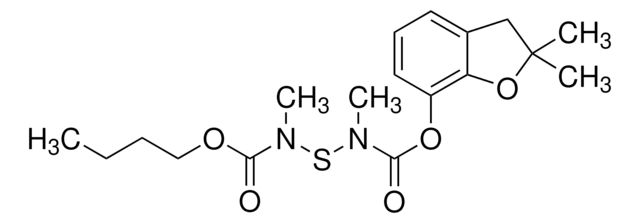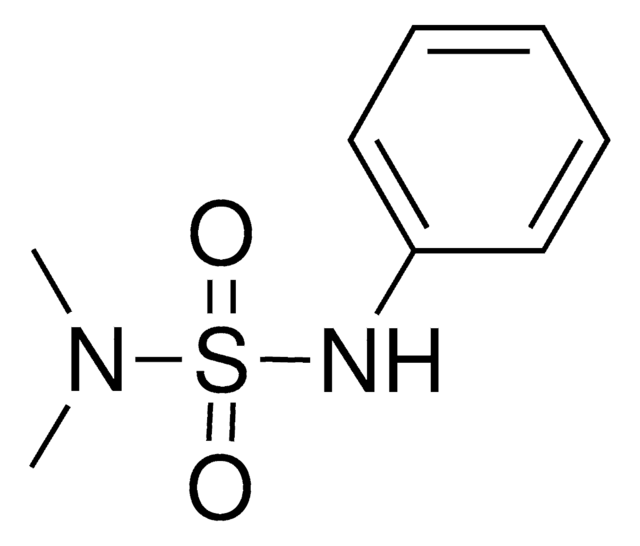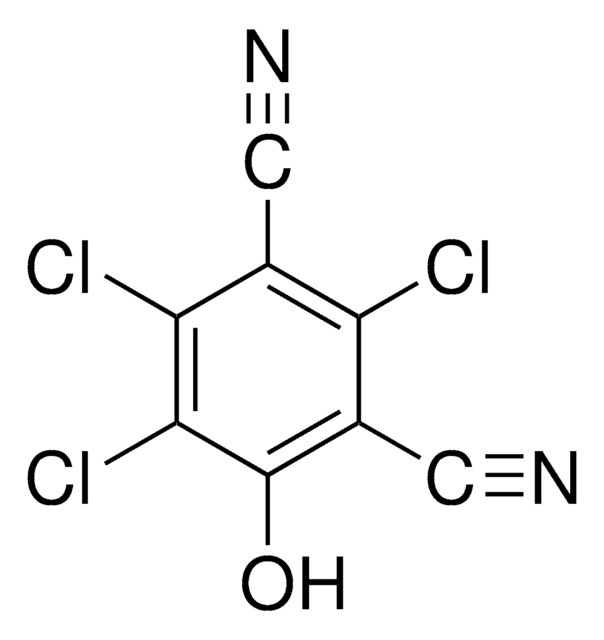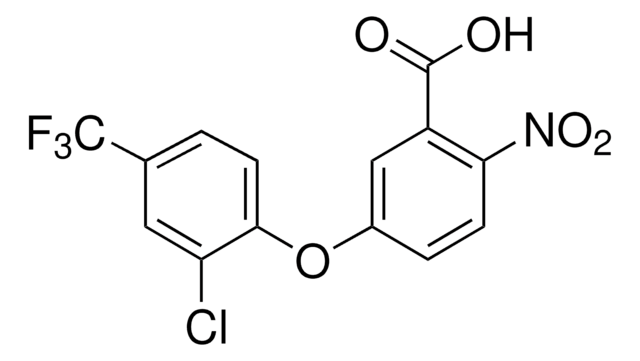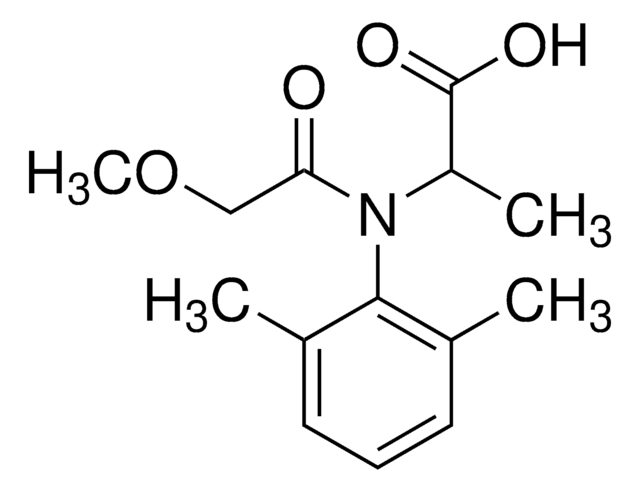45398
Chlorthiamid
PESTANAL®, analytical standard
Synonym(s):
2,6-Dichlorobenzenecarbothioamide, 2,6-Dichlorothiobenzamide
About This Item
Recommended Products
grade
analytical standard
Quality Level
product line
PESTANAL®
shelf life
limited shelf life, expiry date on the label
technique(s)
HPLC: suitable
gas chromatography (GC): suitable
application(s)
agriculture
environmental
format
neat
SMILES string
NC(=S)c1c(Cl)cccc1Cl
InChI
1S/C7H5Cl2NS/c8-4-2-1-3-5(9)6(4)7(10)11/h1-3H,(H2,10,11)
InChI key
KGKGSIUWJCAFPX-UHFFFAOYSA-N
Application
Legal Information
signalword
Warning
hcodes
Hazard Classifications
Acute Tox. 4 Oral
Storage Class
11 - Combustible Solids
wgk_germany
WGK 1
flash_point_f
>212.0 °F
flash_point_c
> 100 °C
ppe
dust mask type N95 (US), Eyeshields, Gloves
Choose from one of the most recent versions:
Certificates of Analysis (COA)
Don't see the Right Version?
If you require a particular version, you can look up a specific certificate by the Lot or Batch number.
Already Own This Product?
Find documentation for the products that you have recently purchased in the Document Library.
Our team of scientists has experience in all areas of research including Life Science, Material Science, Chemical Synthesis, Chromatography, Analytical and many others.
Contact Technical Service